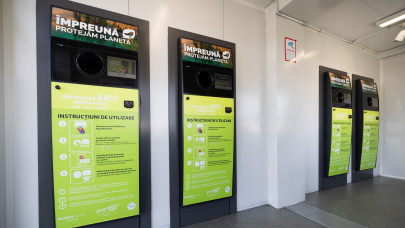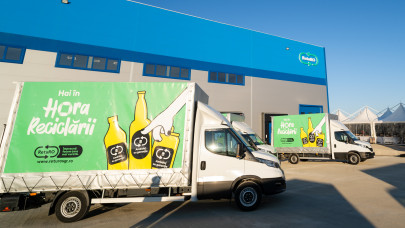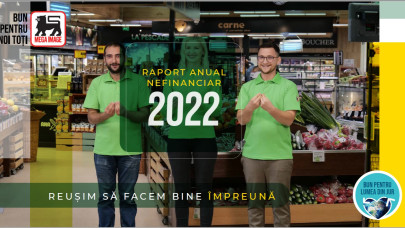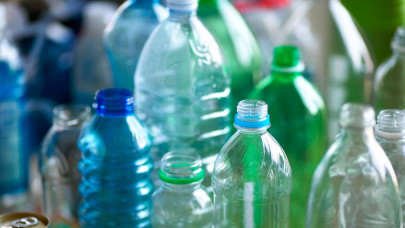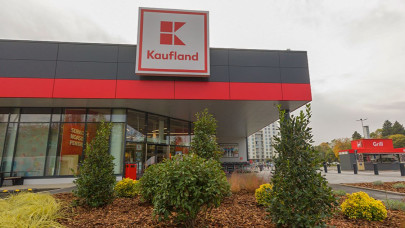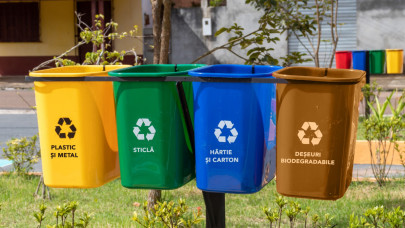”Many families choose to burn their old furniture, and some even throw it out in the fields. Economic agents are beginning to understand the advantages of recycling, but there is still a long way to go. And local authorities, for the most part, remain hard to convince to become more actively involved in this process”, according to the company.
The EGGER factory in Radauti is one of the largest greenfield projects in Romania. The company has over 800 employees in Romania, 70% of whom are from the city of Rădăuţi and surrounding areas. In 2022, EGGER Romania recorded a turnover of RON2.28 billion (€456 million), an increase of 10% compared to the previous year.
"EGGER Romania has a target of 25% recycled wood by 2025. In addition, according to the 2022 Sustainability Report, in the production of chipboard, we use up to 64% of waste from sawmills, such as chips or sawdust, and 16% of lower quality roundwood, derived from sustainable forestry. We don't just talk about sustainability, we demonstrate daily the responsible use of resources," says Alina Chifan, Commercial Director at EGGER Romania.
Being a company with a large number of employees, EGGER has opened five used wood collection centers so far. Here, the raw materials are chopped and shredded, then they are sent to the recycling plant in Radauti, and then into production. According to Alina Chifan, it is a myth that products made from recycled wood would be of inferior quality.
"The use of reclaimed wood has a positive impact, beyond forest conservation. Let me give a more familiar example: many houses in Romania had wooden floors made of oak, for example, which has lost some of its luster over time. But it can be brought back to life through special techniques to regain its beauty and durability. Our main goal is to create high-quality products, through an efficient and innovative production process, with a reduced impact on the environment," Alina Chifan explains.
EGGER does not harvest wood in Romania and does not engage in the wood trade. Regarding the traceability of supply chains, the company applies control measures that far exceed the legal and quality standards in the field, she added.
In addition to fully complying with national and European legislation, especially the EU Timber Regulation (EUTR), EGGER has subjected its Due Diligence System (DDS) and supply chains to external EUTR monitoring by Société Générale de Surveillance SA (SGS), an internationally accredited body, in accordance with Article 8 of EU Regulation 995/2010.
Furthermore, EGGER is certified according to the ISO 38200 Chain of Custody (COC) standard for the wood and wood products supply chain. This allows EGGER to guarantee without any doubt the legality of the wood used.
"EGGER's new wood suppliers go through a rigorous validation process. They must provide proof of the necessary certifications, complete a detailed questionnaire, and provide evidence regarding the legality and origin of the wood. In case of uncertainty, the wood is rejected. Suppliers providing false information are excluded and reported to the competent authorities," explains Alina Chifan.
However, due to illegal practices in the exploitation of timber and the lack of an efficient regulatory and control framework, many suspicions also fall on legitimate companies. Especially if they are foreign, they become scapegoats for all irregularities.
"EGGER Romania is a Romanian company, that pays all taxes and duties in Romania, employing over 800 Romanian employees. The company reinvests more than 20% of its profit into community projects, from facilities for hospitals and schools to educational and development projects," emphasizes Alina Chifan.
EGGER's Sustainability Report for 2022 shows that, for the company, sustainable management means careful sourcing of resources and their efficient use. This maximizes the proportion of secondary raw materials, that is, recycled materials, in the circular economy system.
Co-products from the industrial stages of wood processing, such as wood chips, sawdust, and shredded wood, have found a second life in Radauți, she said.
Residues from the furniture industry, both pre-consumer, resulting from production processes, and post-consumer, such as wood from pallets, transport boxes, construction sites, furniture, interior doors, and wooden floor, are all used in the company's production operations. The cascading use of wood material results in 85% recycled or co-product wood in the chipboard and only 15% fresh wood at EGGER globally.
"To maximize the potential of using wood as a raw material, the company subscribes to the concept of cascading use. EGGER does not allow any inferior quality material to be wasted, turning it into green energy in the form of thermal and electrical energy. In this context, only wood that cannot be recycled should be used for energy production," emphasizes Alina Chifan.
The biomass thermal power plant in Radauti generates thermal energy in the form of steam, which is then used for the production of electricity and for drying wood chips. This process reduces the need to use natural gas. After the cogeneration stage, the hot water is used for technological purposes, such as washing and heating logs, but also as a heating agent in the production process.
The company has achieved 2022 an energy efficiency improvement of 11.5% compared to 2021, largely due to modernization and investment in advanced technology. As a result, 76% of its fuel comes from renewable sources. In addition, 53% of the energy requirements of the Radauti platform are met from renewable sources.
EGGER's goal is to continuously improve in terms of energy optimization for its activities, products, and services. This commitment to sustainable production practices underscores the company's devotion to resource conservation and reducing its ecological footprint.
All EGGER products are made from legally sourced wood and are labeled with "100% verified according to ISO 38200". The company has succeeded to maintain an impeccable record, with no proceedings for violations of EUTR or national legislation regulating the legality of wood origin.
”EGGER ensures direct partnerships with wood suppliers, eliminating intermediaries. Thus, the supply chain is shorter and more transparent, which helps minimize risks for the environment and community”, say the representatives of the company.


